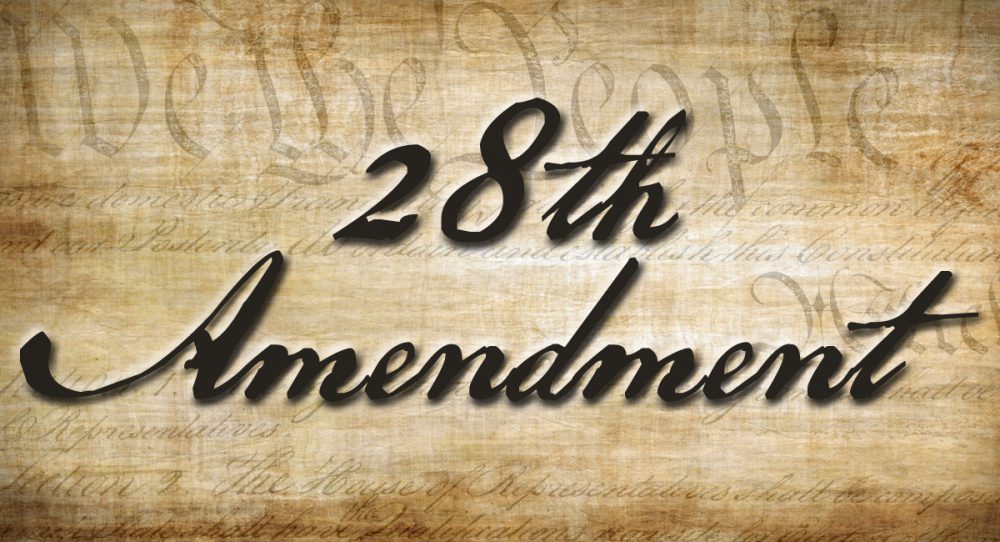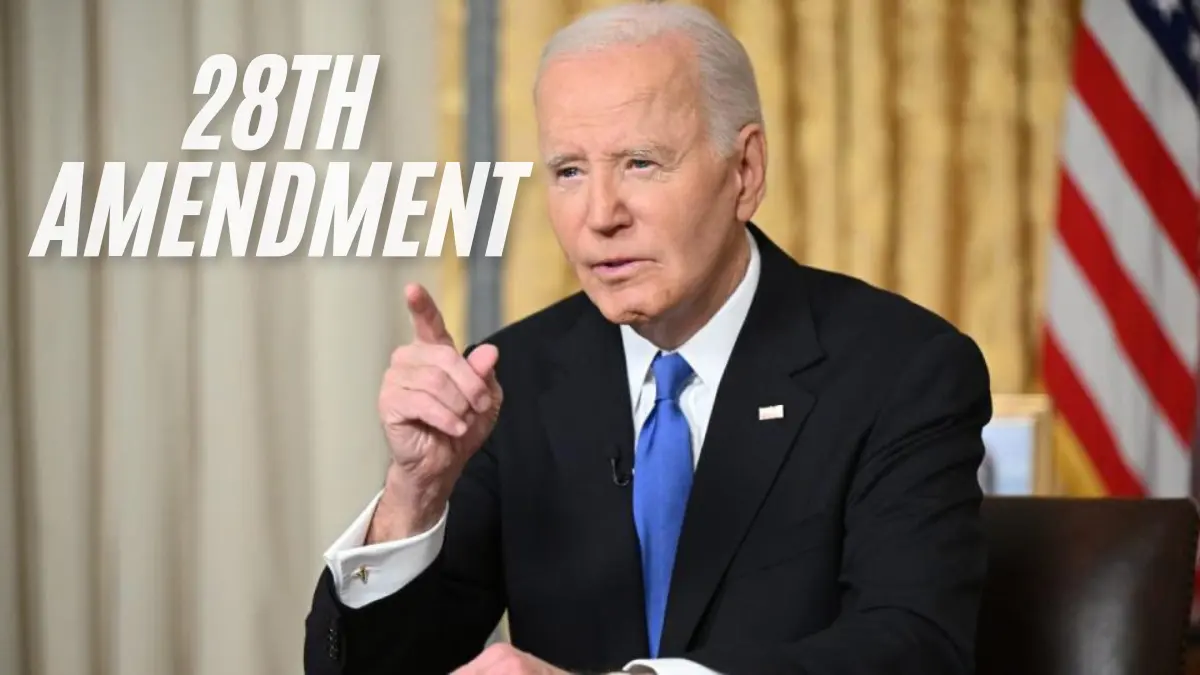28th Amendment The United States Constitution, one of the most important legal documents in the history of the world, has undergone several changes since its ratification in 1787. These changes, or amendments, have played a vital role in shaping the nation’s laws, rights, and governance. As of today, there have been 27 amendments to the Constitution, with the most recent being ratified in 1992. However, there has been much debate about the possibility of a 28th amendment, with various proposals circulating over the years. While the exact details of what such an amendment would entail remain uncertain, it is important to consider the potential impact of a 28th amendment on the nation.
The Process of Amending the Constitut

Before delving into the specifics of the 28th amendment, it is crucial to understand the process by which amendments are made to the U.S. Constitution. According to Article V of the Constitution, there are two methods for proposing amendments. The first method requires a two-thirds majority vote in both the U.S. House of Representatives and the Senate. Once passed, the amendment is sent to the states for ratification, where it must be approved by three-fourths of the state legislatures.
The second method for proposing an amendment involves a national constitutional convention, which can be called by two-thirds of the state legislatures. This has never been used in the history of the U.S., but it remains a viable option for future amendments. Once an amendment is proposed through either of these methods, the states have seven years to ratify it.
The History of Constitutional Amendments
Over the course of U.S. history, many amendments have been proposed to address changing societal needs, political movements, and evolving concepts of justice and equality. The first ten amendments, collectively known as the Bill of Rights, were ratified in 1791 and protect fundamental rights such as freedom of speech, religion, and the right to a fair trial. Subsequent amendments have addressed issues such as slavery, voting rights, and presidential term limits.
The 13th, 14th, and 15th amendments, for example, were enacted in the wake of the Civil War and aimed to provide legal protections for formerly enslaved people and ensure their rights as citizens. The 19th Amendment, ratified in 1920, granted women the right to vote, and the 24th Amendment, passed in 1964, abolished poll taxes in federal elections, thus removing a barrier to voting for many African Americans.
Despite the success of these amendments in expanding civil rights and promoting justice, the process of amending the Constitution is often slow and difficult. This is because any change to the Constitution requires significant political support and agreement from both federal and state lawmakers.
The Case for the 28th Amendment
In recent years, there has been growing discussion surrounding the possibility of a 28th amendment to the U.S. Constitution. Proponents of such an amendment argue that it is necessary to address contemporary issues that were not anticipated by the framers of the Constitution, such as the influence of money in politics, the protection of voting rights, and the expansion of individual rights in the face of technological advancements.
One of the primary reasons that people advocate for a 28th amendment is to address the role of money in politics. In the landmark 2010 Supreme Court case Citizens United v. FEC, the Court ruled that corporations and unions have the same First Amendment rights as individuals, allowing them to spend unlimited amounts of money on political campaigns. Critics of this decision argue that it has led to an undue influence of money in politics, giving wealthy individuals and organizations disproportionate power over elections and public policy.
As a result, there have been calls for a constitutional amendment that would overturn the Citizens United decision and impose restrictions on the amount of money that can be spent on political campaigns. Supporters of such an amendment argue that it is necessary to restore fairness to the electoral process and ensure that the voices of ordinary citizens are not drowned out by the financial power of the wealthy.
Another area where a 28th amendment could have significant impact is the protection of voting rights. Despite the passage of the 15th, 19th, and 24th Amendments, as well as the Voting Rights Act of 1965, voting rights continue to be a contentious issue in the U.S. In recent years, several states have enacted laws that critics argue disproportionately affect minority voters, such as strict voter ID requirements, purging of voter rolls, and limitations on early voting.
In response to these developments, advocates for voting rights have called for a new amendment that would enshrine the right to vote as a fundamental, inviolable right for all U.S. citizens. This would provide stronger legal protections against discriminatory voting practices and ensure that every eligible voter has equal access to the polls, regardless of race, income, or geography.
Additionally, the 28th amendment could address the challenges posed by new technologies and the digital age. The rapid advancement of technology has raised numerous legal and ethical questions, particularly with regard to privacy, surveillance, and the regulation of the internet. Many believe that the current Constitution does not adequately address these issues and that a new amendment is needed to protect citizens’ rights in the digital age.
One proposal for such an amendment would guarantee the right to digital privacy, ensuring that individuals’ personal data and communications are protected from government surveillance and corporate exploitation. Others have suggested an amendment to protect free speech and prevent the spread of misinformation on social media platforms. These proposals highlight the need for constitutional updates that account for the changing nature of society and technology.
Opposition to the 28th Amendment
While there are compelling arguments in favor of a 28th amendment, there are also those who oppose such a move. Critics of the idea argue that the current Constitution is already a living document that can be interpreted in ways that address modern challenges without the need for new amendments. They point to the fact that many of the issues that are currently under debate, such as campaign finance reform and voting rights, can be addressed through legislation and judicial rulings rather than a constitutional amendment.
Opponents also argue that amending the Constitution could have unintended consequences. They fear that a new amendment could open the door to further changes that could undermine fundamental rights or principles of governance. Additionally, they argue that the amendment process itself is inherently political, and any proposed amendment could be subject to manipulation by special interest groups or partisan agendas.
The Future of the 28th Amendment
The question of whether a 28th amendment will ever come to fruition remains uncertain. The process of amending the Constitution is a difficult and lengthy one, requiring broad political consensus and support from both federal and state lawmakers. Moreover, the divisive nature of contemporary political issues makes it challenging to achieve the level of agreement needed to pass a constitutional amendment.
However, the ongoing debates surrounding money in politics, voting rights, and digital privacy suggest that there may be growing momentum for such an amendment in the coming years. Whether through a nationwide grassroots movement, a shift in public opinion, or a change in the political landscape, the possibility of a 28th amendment remains an important issue that warrants continued discussion.
As the United States continues to evolve, it is likely that the question of constitutional amendments will remain a central part of the national conversation. While the 28th amendment may be a distant prospect, its potential to shape the future of the nation cannot be overlooked. Whether it addresses campaign finance reform, voting rights, or the challenges of the digital age, the 28th amendment could play a pivotal role in defining the rights and freedoms of future generations of Americans.



